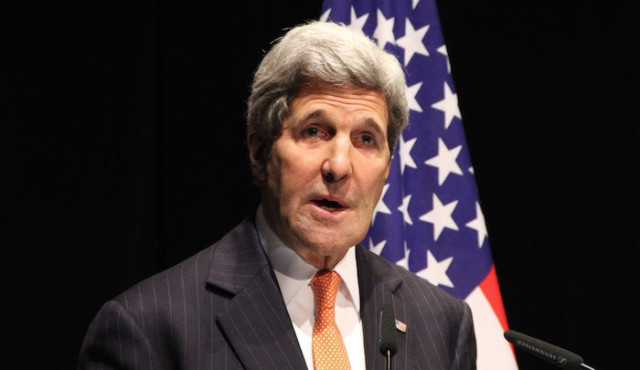American voters’ concern about Islamist extremism is at the highest level since 2002, with 66% of Republicans, 56% of Independents and 48% of Democrats describing it as a “critical threat.” National security is a major issue that received significant attention at last night’s Republican presidential debate.
The following is Clarion Project National Security Analyst Ryan Mauro’s compilation of the candidates’ expressed stances on fighting Islamist extremism at the debate and his personal assessment of the contest’s winners and losers among national security voters.
Winners
Businesswoman Carly Fiorina
Carly Fiorina is widely considered the biggest winner of the debate overall. Her performance included details on national security policy.
She criticized rivals who oppose the nuclear deal with Iran without presenting a broader strategy. She said she’d inform Iran that the regime would be prevented from moving money through the global financial system until it agrees to anytime-anywhere inspections.
Fiorina said the U.S. should not negotiate with Russia because it is on the side of Iran. She said she’d provide intelligence to Egypt and armaments to Jordan to fight the Islamic State, in addition to arming the Kurds.
She advocated a military buildup that includes increasing the 6thFleet, military exercises in the Baltic States, installing anti-ballistic missile systems in Poland, modernizing all three legs of the nuclear triad, increasing the Navy to 300-350 ships and adding 50 Army brigades and 36 Marine battalions.
Fiorina is currently in 8th place in an average of national polls with 3 percent. She is in 6th place in Iowa (5%), 4th place in New Hampshire (8%) and 6th place in South Carolina (4%).
South Carolina Senator Lindsey Graham
Graham is the winner of the undercard debate that featured the bottom four candidates and virtually every answer of his related to national security. Of all the candidates, he was the most impressive on dealing with the Islamic State (ISIS/ISIL). He explicitly said he is running for president to “destroy radical Islam.” Graham said he would “rip the caliphate up by its roots” and “will kill every one of these [ISIS] bastards we can find.”
Graham’s standout moment was challenging every candidate to state whether they support increasing troop levels in Iraq from 3,500 to 10,000 to fight the Islamic State, asserting that anyone who refuses to do so lacks the seriousness to be commander-in-chief. Graham’s overall plan calls for increasing U.S. troop levels to 20,000, split between Iraq and Syria.
He argued that the Islamic State grew in Syria and then propelled into Iraq because the Obama Administration rejected his recommendation that the U.S. military establish a no-fly zone in Syria and support the Free Syrian Army rebel force before it became too late.
Graham said there is no one left to train inside Syria, so the only option is a U.S.-backed regional army that includes Turkey, Saudi Arabia, Egypt, Jordan and others. He said the only solution to the refugee crisis is the removal of Syrian dictator Bashar Assad.
He pointed out that he’s the only candidate who has served in the military (he was in the Air Force for 33 years). Graham has spent 140 days on the ground in Iraq and Afghanistan over the course of 35 trips to those countries.
Graham is currently in 14th place nationally (0.3%). He is in 14thplace in Iowa (0.3%); 12th place in New Hampshire (0.8%) and 7thplace in South Carolina (4%).
Florida Senator Marco Rubio
Rubio gave the most detailed and articulate answers about foreign policy during the debate. He argued for a more interventionist U.S. policy that includes supporting democratic activists, such as by meeting with opponents of Putin in Russia.
He argued that the Syrian revolution began as a popular uprising and the Islamist terrorist presence could have been minimized if the U.S. had armed moderate rebels in the beginning of the conflict.
Rubio said that the Russian military movement into Syria is part of an overall strategy to “destroy NATO,” save the Syrian dictatorship and convince countries like Egypt and Saudi Arabia to ditch the U.S. for Russia.
He is currently in 5th place nationally (5%). He is in 5th place in Iowa (5%); 8th place in New Hampshire (3%) and 5th place in South Carolina (4%).
Rubio explained that he opposed giving President Obama authority to launch airstrikes on the Syrian regime after it used chemical weapons because the plan involved “pinprick” airstrikes. He said that he would only support military action that has victory as an objective.
New Jersey Governor Chris Christie
Christie struck a chord when he spoke about his experience on 9/11 and prosecuting terrorists after the attack when he was the U.S. Attorney for the state of New Jersey. He defended the U.S.-led invasion of Afghanistan after the 9/11 attacks when Carson’s opposition was brought up. He also pledged not to have deals with or meet with leaders like those in Iran who chant “Death to America.”
He is currently in 11th place nationally (2%). He is in 11th place in Iowa (2%), 9th place in New Hampshire (3%) and 12th place in South Carolina (2%).
Losers
Businessman Donald Trump
Trump failed to show any grasp on foreign policy or to outline a strategy towards Islamist extremists when pressed. When he was asked about an embarrassing interview where he appeared not to know what the Iran-linked Al-Quds Force are and the names of prominent terrorist leaders, he simply stated that he’d hire a strong team that would keep him informed on national security.
He boasted of opposing the 2003 U.S.-led invasion of Iraq to topple Saddam Hussein. He said the U.S. should stay out of the Syrian civil war and criticized President Obama for declaring that the Syrian regime’s use of chemical weapons would be an intolerable “red line.” Trump said that Rubio, Paul and Cruz should have supported President Obama’s request for authority to militarily enforce the “red line.”
Trump also expressed confidence that he could work well with Russian President Putin. Fiorina, on the other hand, said the U.S. should not negotiate with Russia.
He is currently in 1st place nationally (31%). He is in 1st place in Iowa (28%), 1st place in New Hampshire (30%) and 1st place in South Carolina (34%).
Dr. Ben Carson
Carson did not display an impressive knowledge of foreign affairs and national security. Serious damage may have been done when the moderator asked about his opposition to the U.S.-led invasion of Afghanistan in 2001 after the 9/11 attacks. Carson explained that he told President Bush to focus instead on energy independence, which Christie politely took him to task for.
Carson also made sure to point out that he opposed the U.S.-led invasion of Iraq in 2003.
He is currently in 2nd place nationally (20%). He is in 2nd place in Iowa (23%), 2nd place in New Hampshire (15%) and 2nd place in South Carolina (19%).
Kentucky Senator Rand Paul
Paul repeatedly stated his anti-interventionist view and said that U.S. military operations often backfire. A new poll shows that 69% of Republicans, 67% of Democrats and 57% of Independents favor having America active abroad.
Paul boasted that he “made a career” out of opposing the 2003 invasion of Iraq and argued that the U.S. should not topple secular dictators because they are replaced by radical Islamic forces. Paul and Trump were the only candidates to express opposition to a policy of overthrowing Syrian dictator Bashar Assad. He also said that U.S. backing of Syrian rebels would mean arming enemies of America.
He said it is “absurd” to immediately scrap the nuclear deal with Iran unless the regime violates it. He spoke in favor of continued diplomacy with Iran and Russia, pointing out that President Reagan met with the leaders of the Soviet Union.
Paul also said he opposes using U.S. ground forces in Iraq and Syria against the Islamic State, but supports continued airstrikes and arming Kurds.
He is currently in 7th place nationally (3%). He is in 9th place in Iowa (4%), 7th place in New Hampshire (5%) and 11th place in South Carolina (2%).
Ohio Governor John Kasich
Kasich damaged his chances by refusing to say that he’d scrap the nuclear deal with Iran. He argued that the U.S. should move in coordination with allies and not withdraw from the agreement unilaterally. He said that the U.S. should sanction Iran if they violate the deal or sponsor terrorism. Rand Paul likewise said maintenance of the agreement would depend upon Iranian compliance.
He was also twice criticized by Graham during the undercard debate for supporting the closure of some U.S. military bases. Graham countered that he’d increase the number of bases.
He is currently in 10th place nationally (3%). He is in 10th place in Iowa (3%), 3rd place in New Hampshire (10%) and 8th place in South Carolina (4%).
Former Florida Governor Jeb Bush
Bush criticized rivals who focused on their pledges to scrap the nuclear deal with Iran. He would not commit to doing so and said that the discussion needs to be about an Iran strategy rather than a strategy to tear up the deal.
Bush encouraged viewers to review his 9-point plan for fighting the Islamic State and the Syrian regime.
He is currently in 3rd place nationally (8%). He is in 4th place in Iowa (5%), 5th place in New Hampshire (8%) and 3rd place in South Carolina (7%).
Other Candidates
Texas Senator Ted Cruz
Cruz’s standout moment was when he promised to “rip to shreds” the “catastrophic” nuclear deal with Iran.
Cruz said that he opposed giving President Obama authority for airstrikes on the Syrian regime in response to its use of chemical weapons because vital national security interests were not at stake. He said that the administration could not answer his questions about how Syrian weapons of mass destruction would be prevented from falling into the hands of the Islamic State and Al-Qaeda.
He is currently in 4th place nationally (7%). He is in 3rd place in Iowa (8%), 6th place in New Hampshire (6%) and 4th place in South Carolina (6%).
Former Arkansas Governor Mike Huckabee
Huckabee spoke passionately against the nuclear deal with Iran and said every candidate should announce that, if elected, he or she will not honor it and, as president, will “destroy” it.
He is currently in 6th place nationally (5%). He is in 8th place in Iowa (4%), 11th place in New Hampshire (1%) and 10th place in South Carolina (3%).
Louisiana Governor Bobby Jindal
Jindal’s standout moment was when he said that Muslim leaders must move beyond generic condemnations of terrorism and condemn terrorists by name. He called on Muslim leaders to preach that these terrorists do not qualify as “martyrs” and are destined for hell.
Jindal said that U.S. policy should be to force Syrian dictator Bashar Assad out of power.
He is currently in 13th place nationally (1%). He is in 11th place in Iowa (3%), 14th place in New Hampshire (0.3%) and 13th place in South Carolina (1%).
Former New York Governor George Pataki
Pataki said he would immediately scrap the nuclear deal with Iran and provide Israel with Massive Ordinance Penetrators (MOPs). However, he may have damaged himself by refusing to endorse Santorum’s call to target Iranian nuclear scientists. He also gave a vague answer about how he’d fight the Islamic State and expressed disagreement with Graham’s plan for a ground offensive with U.S. troops in Iraq and Syria.
He is currently in 15th place nationally with less than a single percent of support. He is in 15th place in Iowa with less than one percent, 13th place in New Hampshire (0.3%) and in 15th place in South Carolina with less than one percent.
Former Pennsylvania Senator Rick Santorum
Santorum boasted that he authored legislation to sanction Iran and Syria when he was in the Senate. The moderator mentioned his past declaration that the U.S. should target Iranian nuclear scientists, which George Pataki refused to endorse.
He described the Iranian regime as an “apocalyptic death cult” and claimed that two-thirds of Iraqi and Iranian Shiites believe that the end of the world will happen in their lifetime. Santorum was making the point that the Iranian regime exports its radical ideology.
Santorum said he supports increasing U.S. troop levels in Iraq to 10,000 to fight against the Islamic State and that he’d support Lindsey Graham’s proposal for 20,000 troops if necessary. He stated that the legitimacy of the caliphate is based on its holding of territory.
He is currently in 12th place nationally (1%). He is in 12th place in Iowa (2%) and in 15th place in both New Hampshire and South Carolina with less than one percent.
Wisconsin Governor Scott Walker
Walker’s comments on foreign policy focused on criticizing the nuclear deal with Iran, which he promised to scrap during his first day in office.
He is currently in 9th place nationally (3%). He is in 7th place in Iowa (4%), 10th place in New Hampshire (3%) and 9th place in South Carolina (3%).
Former Virginia Governor Jim Gilmore
Gilmore failed to make the cut for the debate because he scores less than 1% in national polls. He registers less than a single percent in each of the three early states.
ABOUT RYAN MAURO
 Ryan Mauro is ClarionProject.org’s national security analyst, a fellow with Clarion Project and an adjunct professor of homeland security. Mauro is frequently interviewed on top-tier television and radio. Read more, contact or arrange a speaking engagement.
Ryan Mauro is ClarionProject.org’s national security analyst, a fellow with Clarion Project and an adjunct professor of homeland security. Mauro is frequently interviewed on top-tier television and radio. Read more, contact or arrange a speaking engagement.
RELATED ARTICLES:
Scientist, Activist, Beauty Queen – Meet Fabiola al-Ibrahim
Getting Personal: The Ayatollah’s Agitprop Video Against the US
Danish Teen Murders Own Mother After ISIS Radicalization
Keep the Beard or Lose Your Head: New Draconian ISIS Rules

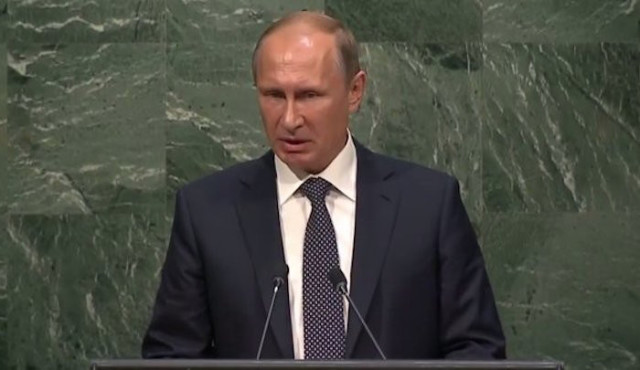


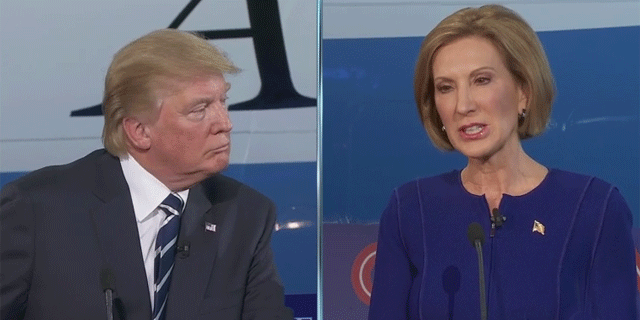
 Ryan Mauro is
Ryan Mauro is






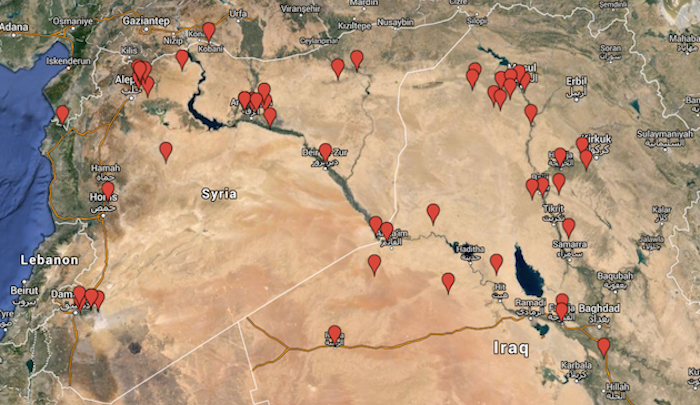
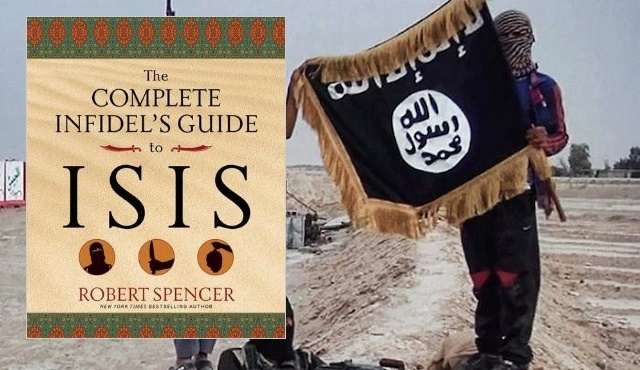
 My latest book, The Complete Infidel’s Guide to ISIS, has zoomed to the top of Amazon’s bestseller list in the
My latest book, The Complete Infidel’s Guide to ISIS, has zoomed to the top of Amazon’s bestseller list in the 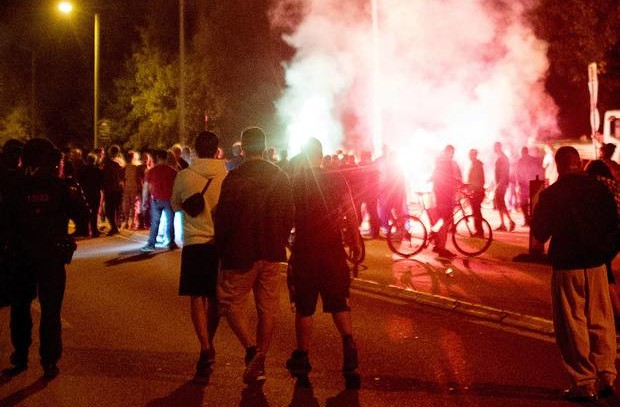


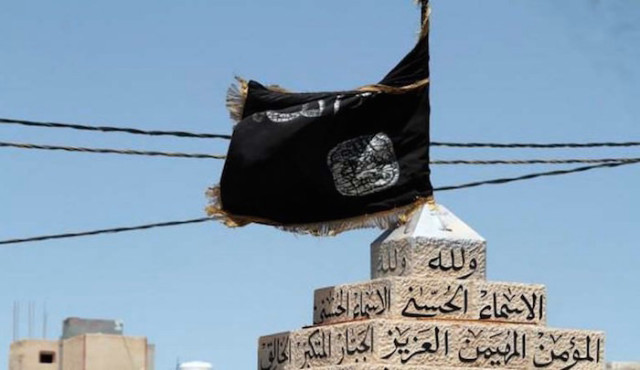
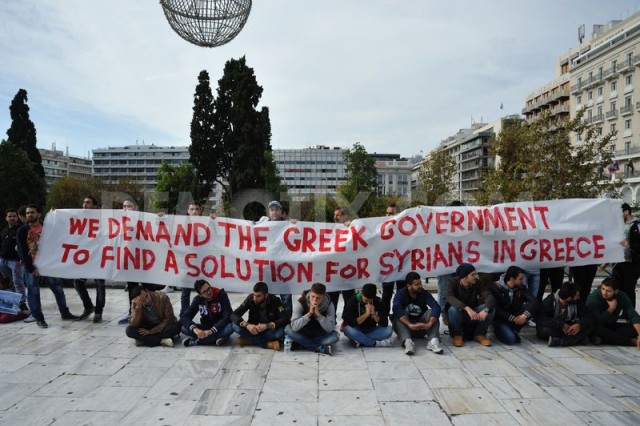
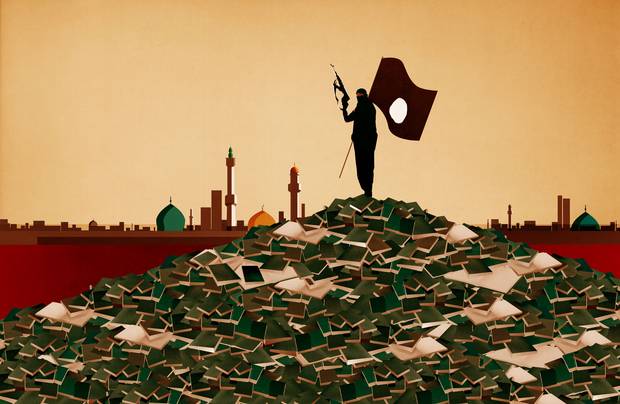
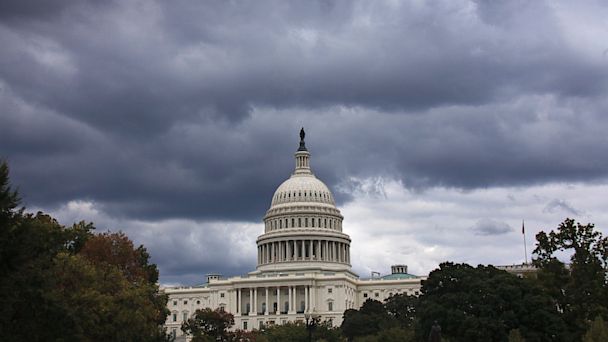
 Kerry and Moniz, when queried about whether they had either knowledge of or read the IAEA secret side deals on PMD, adopted what in TV land is the fabled Sergeant Schultz defense from the 1960’s TV WWII Nazi prison camp comedy series,
Kerry and Moniz, when queried about whether they had either knowledge of or read the IAEA secret side deals on PMD, adopted what in TV land is the fabled Sergeant Schultz defense from the 1960’s TV WWII Nazi prison camp comedy series, 
